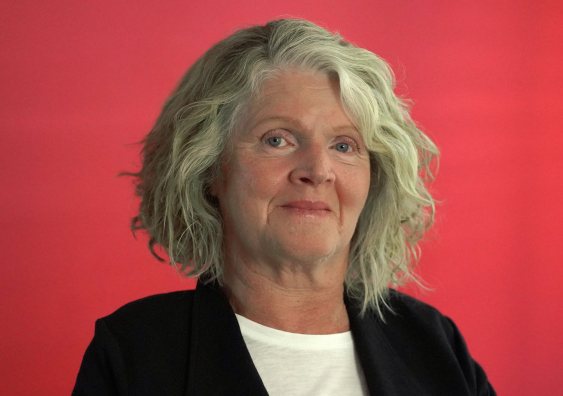UNSW pioneer Rosemary Kayess appointed Disability Discrimination Commissioner
Ms Kayess will be the first woman with lived experience of disability to hold the office since the inaugural commissioner, who was appointed 30 years ago.
Ms Kayess will be the first woman with lived experience of disability to hold the office since the inaugural commissioner, who was appointed 30 years ago.

UNSW Media
Corporate Communications
02 9385 2864
media@unsw.edu.au
After three decades at UNSW Sydney as a student, researcher, teacher, advocate and human rights lawyer, Rosemary Kayess will leave the university in early 2024 to assume the role of Disability Discrimination Commissioner with the Australian Human Rights Commission.
Ms Kayess, who is Vice Chair of the United Nations (UN) Committee on the Rights of Persons with Disabilities, said: “It is an incredible honour to be acknowledged as having the skills required to do the role which in a lot of ways represents the culmination of my career.
“My approach will first and foremost be about the human rights of people with disability.”
UNSW Vice-Chancellor and President Professor Attila Brungs congratulated Ms Kayess on her appointment as Australia’s peak disability commissioner.
“This is a fitting acknowledgment of Rosemary’s remarkable career in disability advocacy, policy and the law.
“As a lawyer, researcher, academic and UNSW alumna Ms Kayess is a trailblazer and I look forward to seeing how she advances the rights of those with disabilities through this new appointment.”
Commission President, Emeritus Professor Rosalind Croucher AM, described Ms Kayess as a leading lawyer who had been extremely influential in her work in international human rights law for people with disability.
“Her contribution to drafting the United Nations Convention on the Rights of Persons with Disabilities, and the lobbying she undertook for its ratification in Australia has made the world a better place for so many people.”
Professor, Disability and Mental Health Policy, at the Social Policy Research Centre UNSW, Karen Fisher, said Ms Kayess has advocated for the rights of people with disabilities throughout her career.
“Rosemary has been a leader and pioneer on many disability policy research projects at the Social Policy Research Centre. She has always patiently given us clear guidance, so we can learn how to improve the quality of our disability-inclusive research. Her strong voice about how to put a human rights framework into practice has been invaluable for unifying the research around shared purpose and priorities.”
Read more: Disability inclusion: how do we change community attitudes?
Dean of UNSW Law & Justice, Professor Andrew Lynch, praised Ms Kayess’ extensive contribution to the UNSW Law & Justice faculty.
“Through her teaching of discrimination law and disability law, her creation of internship opportunities with the UNSW Australian Human Rights Institute and through her national and international expert advocacy generally for the rights of people with disability, Rosemary has made a great difference to the lives of many. Her appointment as Disability Discrimination Commissioner recognises her leadership and the universal high esteem in which she is held.”
Professor of Bioethics and Director of the Disability Innovation Institute at UNSW, Jackie Leach Scully, said Ms Kayess was a key driver behind the creation of the Disability Innovation Institute.
“Rosemary has been a major supporter throughout my time as Director. Her knowledge, acumen and plain-speaking make her a force to be reckoned with. It has been a privilege for the Institute, and for me personally, to call her a colleague."
A motor vehicle accident at the age of 20 left Ms Kayess with a spinal cord injury from which her arms and legs were paralysed.
Ms Kayess said: “I’ve been very lucky in many ways to have the education and experiences I’ve had. Compared to many people with disability I have been very privileged, and I intend to continue to use what I have been given to increase the opportunities of others.
“We need to recognise impairments as just one aspect of the human condition.”
Ms Kayess graduated from UNSW with a Bachelor of Social Sciences (Hons) in 1994 and a Bachelor of Laws in 2004. She has been Academic Lead, Engagement of UNSW’s Disability Innovation Institute and one of the driving forces behind the ground-breaking initiative to help transform the lives of people with disability by harnessing research and innovation across all faculties and disciplines.
In 2019, Ms Kayess was awarded the Human Rights Medal by the Australian Human Rights Commission.